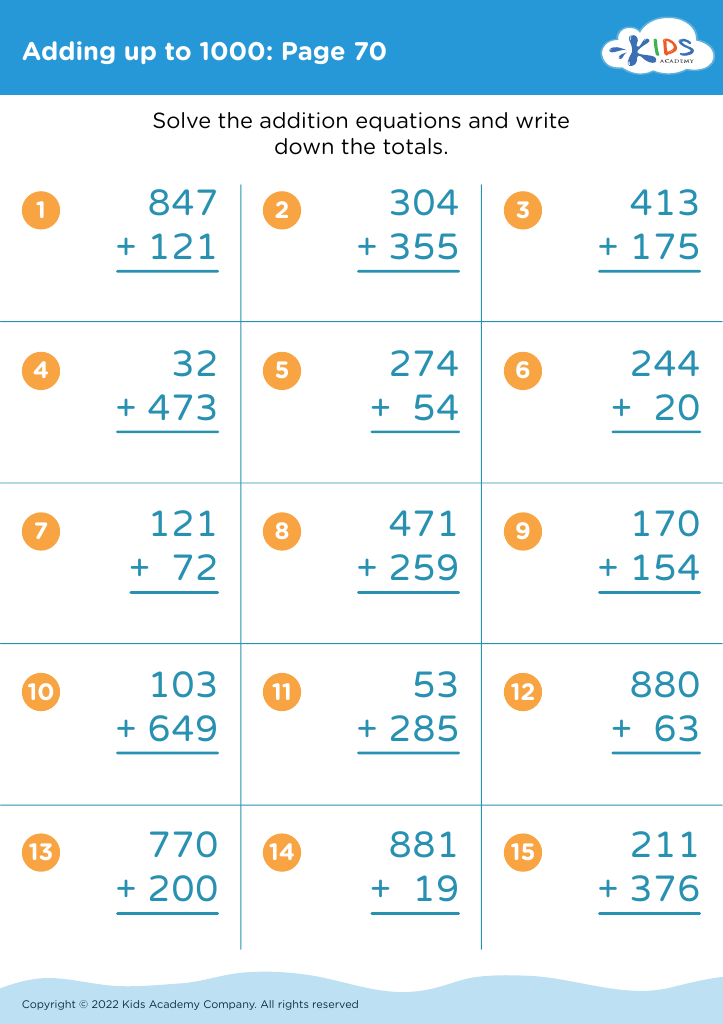Problem-solving practice Adding up to 1000 Worksheets for Ages 4-9
3 filtered results
-
From - To
Enhance your child's math skills with our "Problem-solving Practice Adding up to 1000 Worksheets for Ages 4-9"! These printable worksheets are designed to develop critical thinking and mathematical proficiency in young learners. The engaging exercises present real-world problems that make learning fun and relatable, helping kids master addition within 1000. These activities are perfect for classroom use or at-home practice, providing an excellent foundation in problem-solving techniques. Ideal for ages 4-9, our worksheets build confidence and foster a love for math. Equip your child with the skills needed to solve complex addition problems effortlessly!
Problem-solving practice, especially exercises involving adding up to 1000, is crucial for children ages 4-9 because it establishes foundational math skills vital for future academic success. Firstly, it enhances numerical fluency, allowing young learners to internalize the relationships between numbers and comprehend larger numeric structures. This is essential in developing confidence with mathematics early on.
Additionally, problem-solving cultivates critical thinking and analytical skills. By engaging in practice that requires thoughtful application of addition, children learn to approach problems systematically and develop strategies for finding solutions. This process is not isolated to math; these cognitive skills are transferable and beneficial across all areas of learning and everyday life.
Moreover, mastering these addition skills helps in building resilience and persistence. Working through complex problems requires patience and encourages a growth mindset, the belief that abilities can be developed through hard work and dedication.
Furthermore, earlier exposure to meaningful, challenging math problems can spark curiosity and a positive attitude towards mathematics. It’s important for parents and teachers to make math fun and engaging to instill a lifelong love for learning. By supporting problem-solving practice early on, adults ensure children develop a solid math foundation, nurturing both their intellectual and emotional development.















